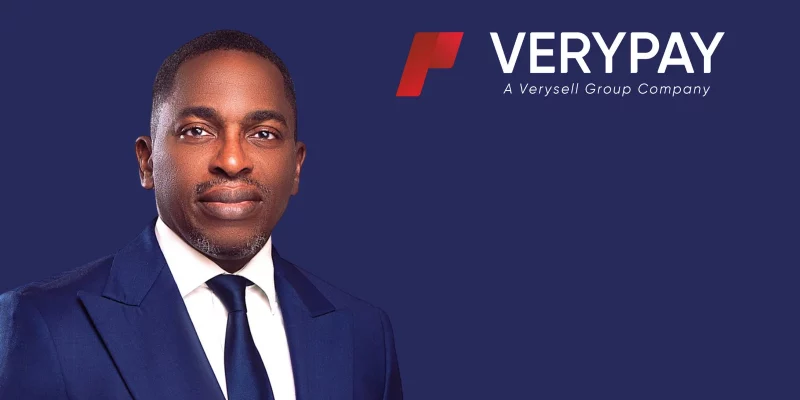Can you tell us what VeryPay is all about?
We see a future where African citizens are financially included by using our innovative payment technology to go cashless, create digital financial records, get access to credit and improve their livelihoods. Our mission is to simplify mobile money payment processes currently operated by telcos for citizens across Africa.
RELATED: Africa’s mobile money industry on upward swing, records 22% growth with 836.5B transactions – GSMA report
By introducing our closed-loop contactless tap-and-go payment technology to mobile wallet operators, we bring speed and convenience to mobile money solutions and extend digital transaction capability to the underbanked. This helps challenge the dominance of cash transactions. In summary, our aim is to help African mobile money operators digitize daily spend by enabling contactless payments for underbanked citizens.
How does VeryPay differentiate itself from other fintech companies in the market?
VeryPay is an eWallet companion solution for African Mobile Money Operators. It acts as a complementary digital payment channel to increase usage and adoption of mobile money solutions, reduce churn, and facilitate financial inclusion safely and securely. Essentially, operators can give any
subscriber in their network the opportunity to become a merchant and take contactless payments using only a smartphone and a mobile money account. They don’t need to have a bank account or merchant account. Similarly, any subscriber can link a payment token to their mobile money account and make a contactless payment at any merchant-enabled store.
By implementing VeryPay, operators don’t need to just rely on a traditional Visa and MasterCard type payment solution, and it helps them bypass challenges like high fees and limited infrastructure in developing economies. They can maintain complete control and branding over the entire payment
experience and VeryPay can be deployed across multiple sectors including retail, transportation, agriculture, education and more.
What unique challenges and opportunities does fintech within the African context present?
Challenges: Infrastructure limitations are a definite challenge across many African markets. Despite the growth in mobile phone usage, broadband coverage remains low across many countries, especially in large, populous rural areas. Significant investments are needed to achieve broadband connectivity across the continent. This infrastructure gap is a barrier to digitisation and the accessibility to fintech.
Fintechs will face complex, challenging, and diverse regulatory environments across the continent. This variation can result in a significant time and monetary investment. For companies looking to expand from a single country footprint this often means establishing a local ‘in-country’ presence and appointing local directors.
Talent scarcity can be a challenge across many African markets. Although the speed of skills development is rapidly increasing, there is still a huge shortage of technical skills in many countries due to relatively low levels of education, particularly in specialised fields like software development and data science.
Opportunities: Fintech has huge potential to drive financial inclusion across Africa. It can leverage the widespread and growing use of smartphones to offer financial services to those who were previously unreachable and those without bank accounts. Simplified risk assessment and account opening processes using alternative data sources and AI can create huge opportunities to give underserved populations access to digital financial services. By leveraging technology, fintechs can significantly lower the costs associated with financial transactions and enable low-income individuals to participate.
“As fintech evolves, there is tremendous potential for African homegrown opportunities to be scaled into other global markets”
As Mobile Money services continue to develop, they provide the platform from which to promote a huge range of digital financial services. Increasing investment in connectivity, smartphone usage and the lowering of costs will all contribute to the significant opportunity that lies ahead. Furthermore, mobile money transactions generate valuable data that can be used by fintechs to better understand consumer behaviour, improve the customer experience, and develop targeted marketing strategies. Fintech in Africa presents a huge opportunity for job creation. As access to the internet and devices such as smartphones increases, the young African population has greater ability to learn digital skills and take advantage of the industry’s ability to create numerous jobs.
As fintech evolves, there is tremendous potential for African homegrown opportunities to be scaled into other global markets and positively impact other sectors like healthcare and insurance. Fintech paves the way for underserved populations to build a credit history, gain access to financing options and make easier payments. This knock-on effect establishes a foundation for improved quality of life for Africans across the continent.
To capitalise on these opportunities, stakeholders including governments, investors, traditional financial institutions, and fintechs must collaborate to create conditions for sustainable growth. This includes formalizing data systems, promoting predictable regulations, expanding local investment opportunities, and focusing on tangible value creation.
What are the biggest opportunities VeryPay sees in the fintech industry over the next 5 years?
The provision of convenient and secure alternatives to cash, such as closed loop contactless payment solutions that work in conjunction with mobile wallets, will enable fintech’s to capitalise on the growing demand for such technology.
“As concerns about data privacy and cybersecurity grow, fintechs have a significant opportunity to and will be forced to develop innovative solutions to enhance data protection for consumers and businesses”
By making financial technology accessible and understandable to huge swathes of currently underserved populations, Fintech’s can play a pivotal role in promoting financial inclusion and financial literacy. By developing educational applications that help consumers, (particularly those in underserved communities) to understand personal finance budgeting, the fintech industry can make a huge difference to large populations that have previously had no access to financial education.
As concerns about data privacy and cybersecurity grow, fintechs have a significant opportunity to and will be forced to develop innovative solutions to enhance data protection for consumers and businesses. This includes advanced encryption technologies and secure authentication methods to build trust and ensure compliance with regulations. AI and machine learning can be leveraged for real-time threat detection and response, enhancing security measures against sophisticated attacks.
Finally, nobody can ignore the opportunity that artificial intelligence offers the Fintech industry. From risk assessment and fraud detection, to personalized financial advice being offered to a consumer from within a chosen application, AI technologies will enable fintech companies to provide tailored services that better meet the needs of individual customers, enhance security, and improve operational efficiency.
What are you hoping to achieve at AFSIC 2024?
The VeryPay team is excited to network with industry professionals, share our mission for financial inclusion in Africa in addition to securing strategic investments at AFSIC 2024.
As one of Africa’s largest investment conferences outside the continent, AFSIC provides an ideal platform for VeryPay to showcase its innovative fintech solutions to a targeted audience of investors, dealmakers, and industry leaders. Our goal is to attract investment that will fuel our growth and expansion plans across the African continent.
By joining panel discussions and presenting at the conference’s fintech sessions, VeryPay aims to establish itself as a key player in Africa’s growing financial technology sector.
PHOTO CREDIT: Oluwaseun Solanke, CEO @ VeryPay HRToday

































